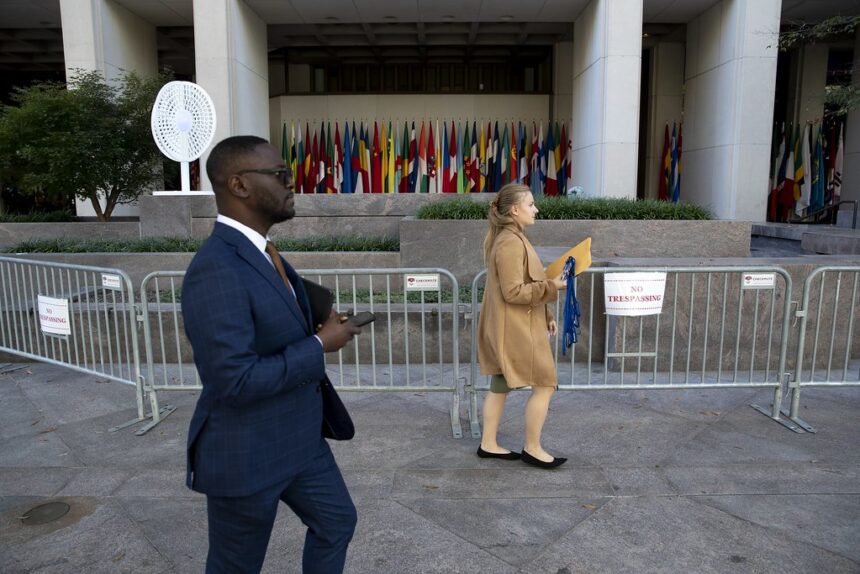A $20 billion loan agreement is likely to be approved by the International Monetary Fund’s (IMF) Board at a Friday meeting. This could have major ramifications on Argentina’s failing economy.
Manuel Adorni is a spokesperson of the Argentine Presidency. He says that this agreement is crucial for South America, which faces significant economic challenges.
Reuters reported that the IMF announced on Tuesday it had reached a consensus at the staff level on the agreement, paving its way for the vote of the board.
Unlocking currency and investment reserves
Argentina faces a unique economic situation, with one of the lowest levels of reserves in foreign currencies, as well as capital restrictions that are not helping to attract investors.
The $20 billion loan in this case is seen as an essential lifeline to the country.
Adorni told local radio station El Observador that it was important for him to know the IMF would approve this agreement. It will be completed on Friday.
According to Reuters, the majority of these funds will be used to keep Argentina’s foreign exchange reserves stocked and roll back protectionist policies which have impeded investment.
The IMF hopes that the loan it provides will help stabilize the Argentinean economy, and give international investors a reason to return to the country.
Details of the Deal
This is the 23rd loan between Argentina and IMF.
Analysts believe it is vital to restoring the confidence of Javier Milei’s libertarian-led government, and strengthening reserve levels at the central bank.
This deal aims to reduce the risk associated with the imminent repayment of debt and ease the concerns on the market about the financial state of the country.
Luis Caputo said, in late march, that the aim of the agreement was to assure the public that pesos are in circulation and backed by central banks. He said this would result in a stable currency with lower inflation rates, as well as reduced poverty.
Caputo said that around 8 billion dollars of the total $20 billion would be spent on bank reserves. The remaining 12 billion dollars will go to pay off principal and interest for past IMF loan.
Change your approach
Manuel Adorni emphasized that the loan marks a change in Argentina’s relationship with the IMF. “For the very first time (the IMF agreement) will not be a spare wheel but part of a clearly defined program”.
It means a green approach to sustainable economic growth, with a focus on strengthening the National Bank and solving perennial issues like inflation and budget deficits.
The Argentine government has made many efforts to tighten its budgetary policy, signaling a wish to stabilize the economic situation.
The steps taken are intended to provide a better environment for economic growth and investment, rather than the previous programs that were often viewed as short-term fixes, not long-term ones.
A troubled relationship in historical context
Argentina’s relations with the IMF have been turbulent.
Argentina, who has borrowed 22 times from the International Monetary Fund (IMF) since 1958, owes this institution over $40 billion.
The IMF has used a large portion of the money to pay off previous debts. This is fueling resentment in Argentina, where many see it as complicit with the economic collapse in 2001 and the default on debt.
The IMF was reluctant to continue negotiating a bailout agreement with Argentina because of its troubled past.
Over the last 16 months IMF officials have endorsed President Javier Milei’s austerity policies, which are even more aggressive than the IMF usually recommends.
The funds will be crucial for meeting financial obligations immediately and to prevent further economic decline. However, there is also the risk of additional austerity, which could spark civil unrest or exacerbate the socio-economic divide in the country.
The information in this post IMF to approve $20B loan on Friday for Argentina: Key details could change as the updates unfold
This site is for entertainment only. Click here to read more






